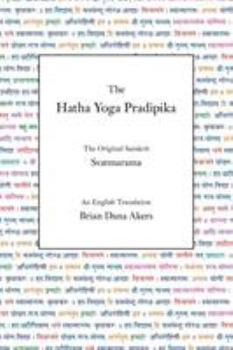The Hatha Yoga Pradipika: The Original Sanskrit and An English Translation
Select Format
Select Condition 
Book Overview
This affordable, definitive edition of the Hatha Yoga Pradipika contains the original Sanskrit, a new English translation, and full-page photographs of all the asanas. The chakras, kundalini, mudras, shakti, nadis, bandhas, and many other topics are explained. This is the first edition of the classic manual on Hatha Yoga to meet high academic, literary, and production standards. It's for people who practice Yoga, and for anyone with an interest in heath and fitness, philosophy, religion, spirituality, mysticism, or meditation.
From the Introduction
Over the last half millennium, one book has established itself as the classic work on Hatha Yoga--the book you are holding in your hands. An Indian yogi named Svatmarama wrote the Hatha Yoga Pradipika in the fifteenth century C.E. Drawing on his own experience and older works now lost, he wrote this book for the student of Yoga. He wrote this book for you.
Sample Verses
Yoga succeeds by these six: enthusiasm, openness, courage, knowledge of the truth, determination, and solitude.
Success is achieved neither by wearing the right clothes nor by talking about it. Practice alone brings success. This is the truth, without a doubt.
When the breath is unsteady, the mind is unsteady. When the breath is steady, the mind is steady, and the yogi becomes steady. Therefore one should restrain the breath.
As salt and water become one when mixed, so the unity of self and mind is called samadhi.
He who binds the breath, binds the mind. He who binds the mind, binds the breath.
Center the self in space and space in the self. Make everything space, then don't think of anything.
Empty within, empty without, empty like a pot in space. Full within, full without, full like a pot in the ocean.
Don't think of external things and don't think of internal things. Abandon all thoughts, then don't think of anything.






